Overall Health
Re-posted with the permission of Perio Protect.
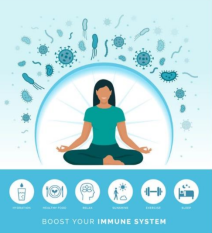 One of the strongest defenses we have against virus’, such as COVD-19, is a robust immune system so we can fight infection – that’s why we’re doing our best to help our patients boost their immunity.
One of the strongest defenses we have against virus’, such as COVD-19, is a robust immune system so we can fight infection – that’s why we’re doing our best to help our patients boost their immunity.
There are a number of scientifically-based recommendations to help boost your immune system such as eating nutritious foods and balancing our diet, making sure to get adequate sleep and physical activity, getting outdoors for some sunshine, and managing stress.
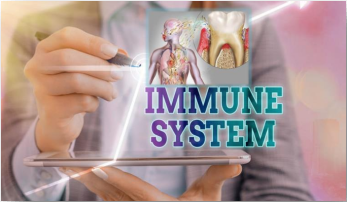
But also, research suggests that treating chronic infections, including in the mouth, may help improve immunity.

Poor oral health influences immunity and if periodontal disease (gum disease) is left untreated, it may negatively impact your overall immunity.
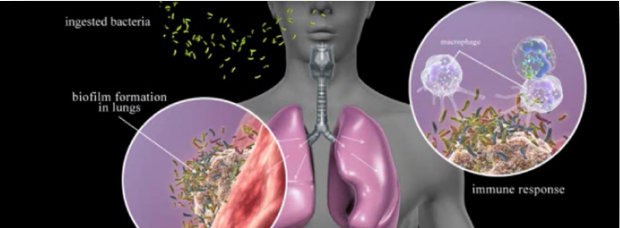
For many years we’ve known that bacteria from gum disease can be aspirated into the lungs. When this happens, the lung’s ability to fight infection is disrupted, which may increase the risk for co-infections, such as virus’, like COVID-19.

That’s why, more than ever before, we’re being especially diligent in examining patients for gum disease or any signs of oral inflammation. And, for those who have gum disease, it’s important to get treated as soon as possible.
Thorough oral hygiene will reduce the bad bacteria in your mouth. That’s a good thing! This includes brushing your teeth twice a day with an anti-microbial toothpaste, and cleaning in between your teeth with floss or pics. A water irrigation device and antimicrobial mouthwashes are other tools for keeping your mouth clean. The goal is to decrease the bacterial burden in your mouth.
© 2020 Casey Hein BSDH, RDH, MBA. All Rights Reserved
Re-posted with the permission of Perio Protect.
With the outbreak of the coronavirus, treatment for inflammation and prevention of infection and disease is more important than ever. The human body can only handle so much inflammation, and the healthier a person is – the less chronic inflammation taxing the body – the easier it is to fight off other infections, including viral. This is why we take any infectious oral conditions, even asymptomatic gum disease, so seriously. Brushing, flossing and homecare may seem mundane, but so is washing your hands. These “mundane” acts can help keep you healthy.
Our office prescribes Perio Protect, a homecare system to prevent and treat gum disease. Special prescription trays, called Perio Trays®, are made just for your mouth to deliver medication deep below the gums to fight infections causing disease. The primary medication applied with the trays, Perio Gel® with 1.7% hydrogen peroxide, is highly effective at killing infectious bacteria and reducing inflammation.
Peroxide also kills the coronavirus. Using peroxide in these special prescription trays will not prevent you from contracting the virus, but the peroxide therapy, rinsing with peroxide or brushing with the peroxide gel may help reduce the viral load in saliva and the risk of oral transmission. For this reason, dentists may ask you to pretreat with a peroxide product before coming to the dental office.
Maintain A Healthy Smile and a Healthier Immune System
It has never been more important to keep your gums healthy. Gum health is key to keeping your teeth for a lifetime and important for a healthy immune system. The chronic inflammation from infected gums is also associated with arterial inflammation, heart disease, stroke, dementia and uncontrolled diabetes. For patients with these illnesses, it is especially important to see our dental team.
If you have been told that you have gum disease or if you are concerned about bleeding gums or chronic bad breath, both symptoms of infected gums, be sure to schedule an appointment. We believe that informed patients will make informed decisions. Be sure to contact us to discuss your concerns.
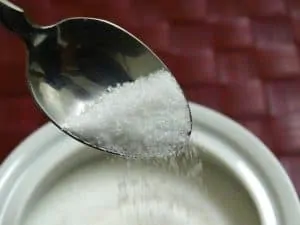
Xylitol: 101
While xylitol is yet another sugar substitute, it’s actually quite different from many others available at your local grocery store. First of all, xylitol is natural — it’s found in fruits, veggies, and even in our bodies during digestion. Second, xylitol tastes like sugar but doesn’t act like sugar once it’s in our bodies. This means you can still have a sweet treat without all of the negative side effects of actual sugar. You see, sugar is pretty harmful to our overall health. It can spike blood glucose levels and, over time, cause difficulties with your metabolism. This may result in weight gain or make it difficult to lose weight. Xylitol, on the other hand, is low in calories (it has 40% fewer calories than sugar!) and has a low glycemic index. As a result, blood glucose levels are nearly unaffected by xylitol, and bodies are protected. But that’s not all. As your dentist in Sparks knows, xylitol may protect oral health, too.
The Protective Power of Xylitol
We already know that xylitol is a healthier alternative to sugar and can protect our bodies. But the oral benefits of xylitol are also plentiful. Chewing gum that contains xylitol may:
- Prevent tooth decay
- Starve bacteria
- Prevent oral inflammation
- Reduce your risk of gum disease
- Remineralize teeth
- Increase saliva production
- Reduce the acidity of your saliva
- Help with calcium absorption
How does xylitol do all of that? We’re glad you asked.
Essentially, xylitol starves a dangerous bacteria commonly found in our mouths called Streptococcus mutans. These bacteria love to feed on sugar as it gives them fuel and allows them to multiply, which is a big problem. Streptococcus mutans is the main cause of plaque buildup, and when there are too many Streptococcus mutans, there’s probably also too much plaque. The result? An increased likelihood of developing cavities. But when we replace sugar with xylitol, we see a much different result. Streptococcus mutans bacteria will still feed on the xylitol, but instead of fueling the bacteria, xylitol actually starves them and they start to die. This means fewer bacteria and a lower risk of decay.
Even though chewing xylitol gum can go a long way in protecting teeth, it is not a replacement for good old-fashioned oral hygiene. Yes, gum can freshen breath, and yes, xylitol can help prevent decay, but if you don’t brush and you don’t floss, and if you don’t see your dentist in Sparks regularly, chances are xylitol won’t be enough to protect your teeth.
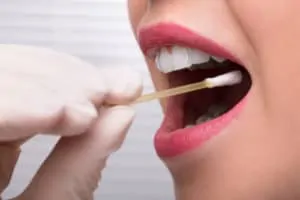
25,000 Quarts of What?
In your lifetime, you’ll produce an average of 25,000 quarts of spit. That’s enough saliva to fill a standard size swimming pool. But why do we need so much spit? We’re glad you asked.
Spit is an extremely important part of a healthy mouth as it helps remove food particles that may linger around after a meal. This is key to protecting teeth against dangerous bacteria that just love to feed on leftovers. The more spit we produce, the more food is rinsed away, and the better protected your teeth are. Spit’s superpowers don’t end there. Saliva can also help neutralize plaque acid, which can protect your pearly whites from decay.
Not Enough
There are times when you may not be producing enough spit. If this is the case, you probably feel as if your mouth is always dry, no matter what you do. Don’t ignore this symptom – call your Sparks dentist as soon as you can. A dry mouth is a serious problem that can increase the risk of decay since there’s not enough saliva to wash away food and bacteria and neutralize acids. Talk with your dentist to find out what may be causing your dry mouth and work together to find the best solution.
Spit and Overall Health
Spit’s benefits reach beyond oral health alone. Spit can help find bone marrow donor matches to help those with blood cancers. Unfortunately, the prevalence of blood cancers is extremely high, and every three minutes someone in the U.S. is diagnosed with blood cancer. This makes bone marrow really important. But patients can’t use just any bone marrow. There has to be a match. BeTheMatch.org is an organization that encourages people to join the bone marrow registry by simply swabbing the inside of the cheek and submitting it to their library where they’ll scan the registry to help find matches for patients. Who knew something so simple could help save a life?
Even though your dentist in Sparks may be more used to spit than you are, and while it may be a little gross, try to remember just how important it is for oral health and how it can help someone battling a very serious and very scary disease.
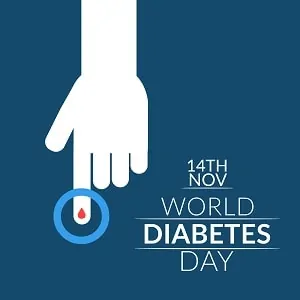
Oral Health & Diabetes
Diabetics and their caregivers are well aware of just how much the disease can affect the body, but an often overlooked side effect of diabetes is directly related or oral health. The truth is, diabetes can increase the risk for gum disease, oral infections, poor healing after dental treatment, and dry mouth. If you’re diabetic or have a loved one with diabetes, try these tips to keep oral health in tip-top shape.
Tip #1 – Regular Dental Care is Key
Practicing good dental habits at home is a great way to reduce the risk of diabetic complications related to oral health. Make sure to brush your teeth twice a day, every day, for two minutes. Use a soft-bristled toothbrush and scrub gently to avoid damaging your teeth or gums. Also, brushing your tongue and flossing every day can take your at-home oral hygiene routine one step further and remove even more plaque and bacteria. At our dental office in Sparks, we also recommend maintaining regular visits with our team so we can keep a close eye on oral health. This is especially important if you’re diabetic.
Tip #2 – Eat Smart
Those with diabetes know the importance of eating healthy to control their blood sugar levels, and we can’t stress enough how important a well-balanced diet is for your oral health, too. Minimize your sugar intake to avoid blood sugar spikes and to protect your teeth from its damaging effects. Choose fresh veggies, fruits, and whole grains for a complete diet that’s not only good for your body but also good for your smile. If you’re unsure which foods are best and worst for diabetic patients, talk with your doctor about creating a meal plan.
Tip # 3 – Level Out
Diabetics are accustomed to checking and maintaining their blood glucose levels, and for good reason. Spikes in blood glucose levels can damage essential organs such as the heart and kidneys. But increased blood glucose can also cause problems with your mouth. High blood glucose in diabetics also means a higher chance of loose teeth or even losing teeth altogether. Another oral health concern related to diabetes is gum disease. Gum disease is a serious condition for anyone, but diabetics may have more problems fighting the infection and, in turn, keeping their diabetes under control.
Join our dental office in Sparks in celebrating World Diabetes Day by wearing blue, scheduling a check-up with your doctor if you suspect you may have diabetes, and of course, always brush and floss.

These little bite-sized treats are tricky because you think you can have one and just be done. You give in to your cravings and then “BOOM” the next thing you know there are wrappers everywhere and an empty bag to boot. We tried these three easy tips to help stop you from wanting to indulge in everything sugary and sweet, and they actually worked.
Step #1 – Drink Water (Lots of It)
We’re sure you’ve been told somewhere along the way, sometime in your life about the importance of drinking enough water daily. The key is staying hydrated so that your body can function optimally and maintain a proper eating or digestive routine. If you’re craving something sweet, don’t be tempted to reach for an energy drink or a sports beverage. They’re not healthy (like they labels might lead to you believe), and they contain sugar that sticks to teeth and leads to decay.
While opinions differ about how much water a person should consume each day, there’s a little handy, dandy trick called the 8×8 rule you can use. Most health authorities suggest drinking eight, 8-ounce glasses of water daily, or 8×8! (This is equivalent to about two liters or half a gallon).
Step #2 – Eat Healthy
Cravings for sugar are different than your body telling you it’s hungry. It’s your brain playing a little trick on you compared to when you need to refuel for energy, and your body says it’s hungry. Your mind wants you to eat the sugary treat because you’ll feel a release of dopamine as part of your body’s “reward system.” Try to opt for healthy snacks such as fruits and veggies. Go ahead and eat a meal that’s rich with protein, which is excellent for helping to curb cravings and hunger.
We understand that eating real, healthy food isn’t the same as diving into that bag of candies or indulging in that cupcake. But your body (and your smile) will surely thank you for making the right choices now, so they’re there for you in the long run.
Step #3 – Get Enough Sleep
Your Sparks dentist will be the first one to tell you how important sleep is in our lives. It does make a difference in both your oral and overall health. Sleep loss can dramatically change the timing and release of certain hormones responsible for controlling your appetite. When you’re deprived of a good night’s sleep (especially regularly), these hormones get released in larger amounts. Your stomach also releases the hormone that makes you feel full in smaller amounts, causing a perfect storm for cravings and binge on sweets.
What’s more interesting is this: studies show that we change what kinds of foods we purchase when we’re overly tired, too! Researchers found that an increase in hormone levels contributed to us wanting to buy foods that are high in calories and sugar. Both our bodies and brains crave the rewards of unhealthy foods when we get less than seven hours of sleep each night.
We hope you’ll give these three steps a shot, whether it’s on a small or even a bigger level. We know how hard it can be to say no to sweets, no matter what age you are. This time of year, with all of the added pressure, is an excellent opportunity for you to use these tools discussed here to keep your body and your smile healthy. If you have any questions about these tips or would like to know more about how to take care of your teeth, email or give our Sparks dental office a call!
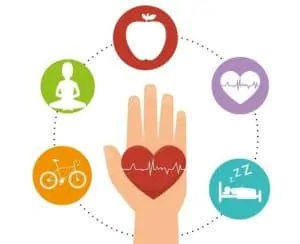
Tip #1 – Keep Your Gums Healthy
There’s a reason why this is number one! Your gum health is so critically important to the rest of your body. According to the Mayo Clinic, recent studies are revealing new evidence that oral bacteria and inflammation due to gum disease are related to a variety of health issues. They include:
– Diabetes
– Low Birth Weight
– Premature Births
– Alzheimer’s Disease
– Stroke
Tip #2 – Keep Plaque from Attacking Your Teeth
There’s a good chance that if you tested your mouth right now, there would be about 500 different types of bacteria hanging out there. Some of them are good. Some of them are not-so-good. The harmful bacteria have a good time sticking to your teeth, forming a colorless, sticky substance known as plaque. This stuff attacks your dental enamel and loves to create periodontal problems or gum disease. It’s important to keep your teeth clean and free from plaque buildup. You can do this by:
– Brushing – Remember to brush for two minutes, twice a day. If you’re unable to brush or floss, don’t forget to try at least chewing a stick of sugarless gum to help fight bacteria.
– Flossing – Flossing recently got some bad press, questioning whether it’s necessary. We’ll always tell you to say “YES” to flossing. In fact, it’s super important to help keep your gums healthy. Flossing removes the bacteria and plaque that can get stuck between your teeth where your toothbrush can’t reach. Dental floss is one of your gum’s best defenses against harmful bacteria.
– Seeing Your Sparks Dentist – Remember to keep up with your regular dental appointments and cleanings. We make scheduling a visit comfortable and convenient, so you don’t have to worry about any hassle or issues. It’s important to have regular dental care so that we can monitor any changes to your gum and smile health.
Tip #3 – Keep Eating (and Drinking) Right
Remember to treat your body and your smile right by eating healthy. One of the most significant contributors to tooth decay and gum disease is sugar. Try to limit sugary drinks and foods for you and your family. This includes sodas and sports drinks that seem to be so readily available these days. Always opt for water when you’re feeling dehydrated. Having a balanced diet is a critical element of having optimal oral and overall health. Check out the “Food Plate” guidelines courtesy of the USDA to see how easy it is to maintain a proper, simple diet. You’ll get an idea of what food options are an excellent choice and which ones you should avoid altogether.
At our Sparks dental office, we’ll always stress the importance of taking care of your teeth so the rest of your body can stay healthy too. We can’t wait to see what research uncovers as science and technology progresses each year. Always remember that giving your mouth the same attention you give the rest of your body is going to help ensure you’re able to live a long, happy life. Talk to us about scheduling your next dental visit today!
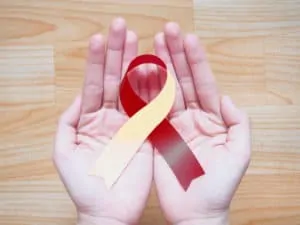
Oral Cancer Statistics
The word “cancer” itself instills some fear in all of us. It’s a scary disease that affects millions of Americans every year. Oral cancer is no different. It’s a widespread problem that can take the lives of those affected. In fact, oral cancer kills one person every hour, every day annually. That’s more than 8,500 people each and every year. This year alone, more than 50,000 people will be diagnosed with oral cancer.
Oral Cancer Symptoms
Being aware of the signs and symptoms of oral cancer can save your life. However, many signs of oral cancer can resemble other non-serious oral health problems. So if you notice any of the signs below and they don’t go away, call your dentist in Sparks as soon as possible to get checked out and ease your mind.
- Pain while swallowing, chewing, or speaking
- Changes in voice
- A sore or discoloration that doesn’t go away after two weeks
- A lump inside the mouth or neck
- Chronic bad breath
The most successful way to treat oral cancer is to diagnose it early. This is also one reason why you should see your dentist at least every six months.
Oral Cancer Risk Factors
Oral cancer can happen to anyone, but there are factors that can put someone at greater risk. Some we can control, others we cannot. Some risk factors are:
- Tobacco Use: 80% of oral cancer diagnoses are in tobacco users including those who smoke cigarettes, cigars, or use smokeless tobacco.
- Drinking Alcohol: Nearly 70% of those diagnosed with oral cancer are heavy drinkers.
- Gender: Men are two times more likely to develop oral cancer than women.
- Age: Those over the age of 50 are at increased risk of oral cancer.
At our Sparks dental office, we care about keeping our neighbors healthy. If you have any questions, are concerned about your risk of oral cancer, or it’s been more than six months since you’ve seen a dentist, we welcome you to schedule an appointment with us.

What Causes Bad Breath?
Bad breath can be caused by something temporary such as fragrant food or something like coffee. This type of bad breath usually resolves itself and is probably nothing to worry about. However, when bad breath becomes an ongoing occurrence, you should consider calling your dentist in Sparks.
Chronic bad breath is typically caused by an overabundance of bacteria in the mouth. Now, while the bacteria themselves don’t smell bad, the byproduct they give off after feeding certainly does. This byproduct is stinky hydrogen sulfide and it’s what we’re referring to when we talk about smelling bad breath.
Why is Bad Breath Concerning?
Besides causing embarrassment, bad breath can be an early symptom of gum disease. Gum disease is a serious problem not only for your mouth but also for your body. Untreated gum disease can lead to tooth loss, sensitivity, and has even been linked to an increased risk of heart attack and stroke. Essentially, bad breath is something you should take seriously and seek proactive treatment.
How to Get Rid of Bad Breath
If you suffer from bad breath, there are few tips you can try.
- Practice Good Oral Hygiene. Making sure that you brush and floss daily is a great way to get rid of bacteria that could contribute to bad breath if left alone. Clean the surface of every tooth, under the gum line, and the tongue.
- Choose Water. Keeping your mouth hydrated helps wash away bacteria which can lower your risk of bad breath. When our mouths don’t get enough water, they dry out and saliva production slows, leaving bacteria free to linger around.
- See Your Dentist. Maintaining regular visits to your Sparks dentist can not only help protect your smile from cavities, it can also help catch any potential problems before they have a chance to become serious… including gum disease. If you’re worried about your bad breath, or if it’s been longer than six months since your last dental appointment, give us a call today.

How Smoking Affects Your Oral Health
One of the commonly overlooked dangers of smoking is how it affects oral health. But it’s certainly a concern for your dentist in Sparks. The truth is, several oral health problems are directly related to smoking, and continuing to smoke can put you at increased risk for:
- Dry mouth
- Bad breath
Tips to Quit
Smoking is addictive and therefore not easy to quit. Some people even try quitting multiple times before they succeed at never picking up another cigarette. We understand how difficult quitting can be and are here to provide support for anyone looking to improve their health by never lighting up again.
- Find a Support Team. Trying to do something as difficult as quitting smoking isn’t easy to do on your own. Sometimes it’s made easier by finding trusted friends, family members, or health professionals to help. Make sure your chosen quit team can be supportive in the way you need them to be and set up a plan with them.
- Identify Your Reasons to Quit. Writing out a physical list of why you want to quit smoking can be a great first step to success. Seeing your reasons on paper may help them feel more ‘real.’ When you have a strong craving, get out your list and remind yourself all of the reasons why quitting is important.
- Know Your Triggers. Part of what can make quitting so difficult is that smokers often develop a routine to when they smoke — on the car ride to work, when drinking alcohol, drinking coffee in the morning, to name a few. While some triggers may be harder to avoid than others, try your best to steer clear of anything that will make you want to light up.
- Find Alternatives. Another thing that makes it difficult to quit smoking is that smokers get so used to having something in their hand that when they suddenly don’t, it feels uncomfortable. Keep your hands busy by holding a pencil or straw. This can mimic the feeling of a cigarette and ease the mind.
This year’s Great American Smokeout can be your time to finally quit smoking. On November 15, make a plan to quit and stick to it. Select a quit date and take the steps to become smoke free by that date. Your physician, along with our Sparks dental office, can also provide you with additional ways to help.
